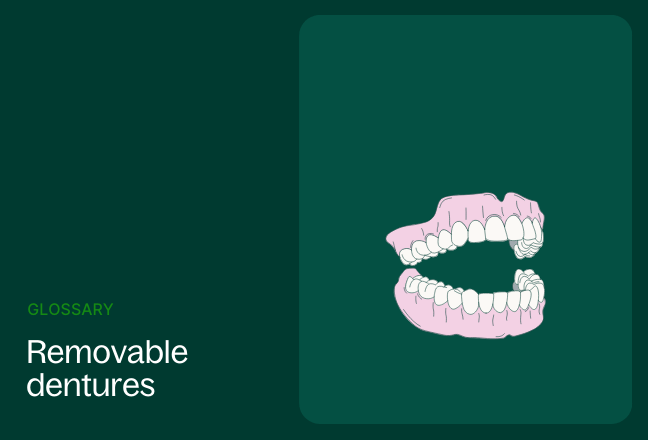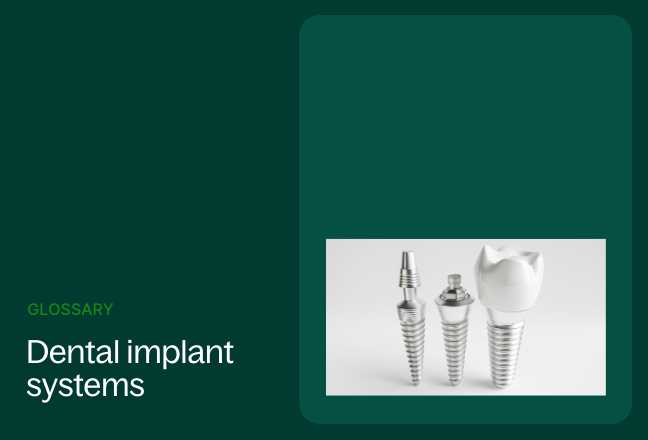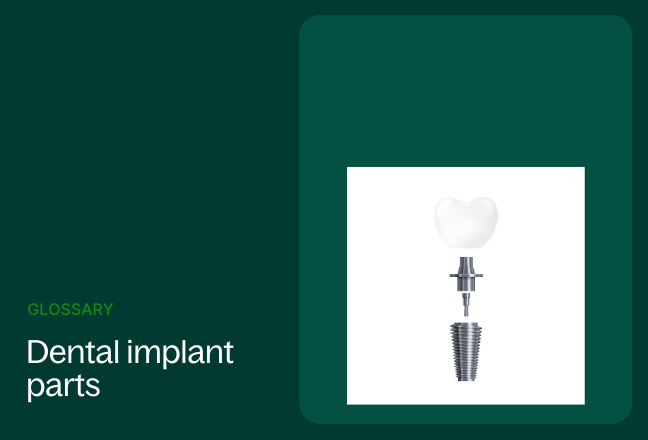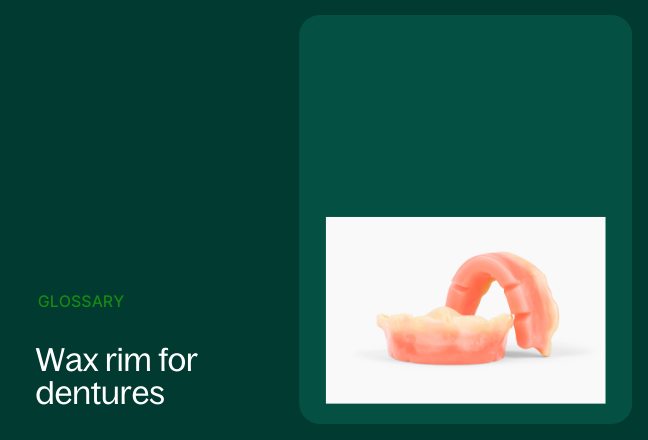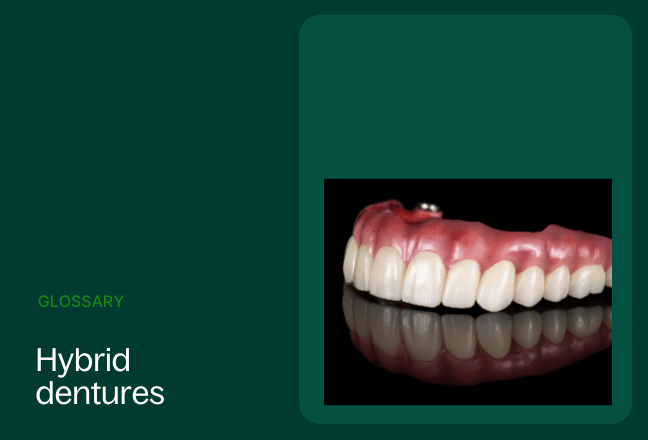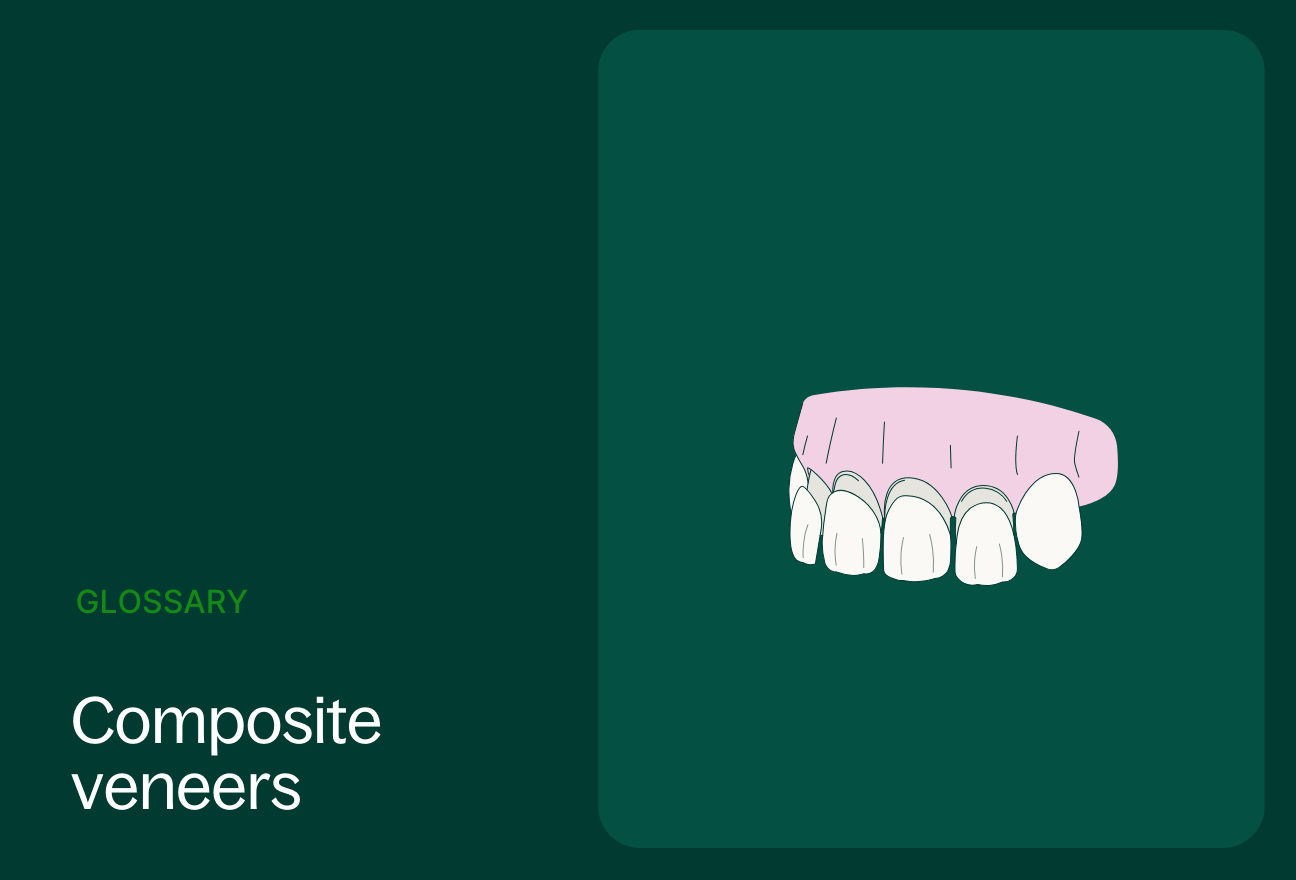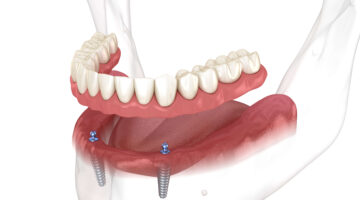Removable dentures are artificial replacements for missing teeth and surrounding tissues. They are made of a plastic base that fits snugly over your gums and contains replacement teeth made of acrylic, porcelain, or metal. Often removable dentures are partial dentures, however if a patient were missing all of their teeth (on any given arch), they would get a full denture.
Types of removable dentures
Partial dentures
Description: Removable partial dentures, also known as “RPDs,” are prosthetic devices for patients with some missing teeth. Long-term partials are common for patients who can’t afford implants or don’t have the proper underlying bone structure to get implants.
Lifespan: Studies of the lifespan for RPDs has shown there are many different variables to be considered, but on the whole, they are quite durable with many studies showing a survival rate of 90% or greater over a period of 5-10 years.
Complete dentures
Description: This is the type of denture used when a patient does not have any teeth in one or both arches at the beginning of the denture process.
Lifespan: Studies have shown that removable complete dentures have a lifespan of roughly 10 years, with most complete dentures lasting at least five years.
Immediate dentures
Description: An immediate denture is made to be placed into a patient’s mouth on the same day that the dentist extracts any remaining teeth that are in the patient’s mouth. Sometimes, these are called “temporary dentures” because they are ultimately replaced by better-adhering dentures at some point in the future. These are often used to allow the patient’s mouth to heal before fabricating a more permanent denture. The patient has teeth at the start of this process, therefore the dentist can record notes and make measurements about the patient’s current bite and the length and size of the patient’s teeth. These records and measurements are used and incorporated into the denture to replicate the patient’s original teeth and bite. They look just like complete dentures.
Lifespan: Immediate dentures are intended to be temporary, thus a patient isn’t expected to be using them for longer than four to six months giving their gums time to heal before a more permanent option is implemented.
Implant supported overdenture
Description: A removable denture that uses implants to provide more stability. These implant supported dentures click in either to locators or to a bar in the patient’s mouth. These dentures can at times be supported by less than four implants and are used whenever a patient isn’t a good candidate for all-on-X but requires additional retention. An implant overdenture sits on gums so any vertical biting force is dispersed on gums similar to a standard denture.
Lifespan: In a study of 650 implants, implant overdenture showed a survival rate of 95.3%.
Removable dentures vs. fixed dentures
Both removable and fixed dentures are solutions for replacing missing teeth, but they offer distinct advantages and disadvantages. Each process has its own pros and cons, let’s compare the two to help determine when each should be utilized.
Removable dentures offer many different advantages for the patient, most notably that they are a more cost-effective option. Since they do not require surgery to install, they are also a less invasive procedure. Removable dentures are also easy to clean and a good option for patients with limited jawbone.
Most of the drawbacks with removable dentures are related to the fact that they are, well, removable. Removable dentures can slip around in the mouth while eating and speaking, which can sometimes lead to speech problems, as well as the need for adhesives to prevent further slipping. They can also cause a patient discomfort as they sometimes feel bulky and unnatural in the mouth. Over time, removable dentures can also contribute to bone loss.
The main advantage of fixed dentures is that they feel much more natural in the mouth than removable dentures do. This natural feel leads to improved chewing and speaking, and because they are fixed, there are no issues with slippage. With proper care, fixed dentures can last for many years.
The process of installing fixed dentures is both more invasive and more expensive than with removable dentures, which can be a significant drawback for some patients. Fixed dentures are more difficult to clean as well. Fixed dentures require a significant amount of jawbone support, so they are not suitable for all patients.
Further suggested reading: Implant-supported dentures vs. implant retained dentures.
There are many factors to discuss with a patient before deciding upon removable dentures or fixed dentures: cost, invasiveness, comfort, and more. A thorough discussion between you and the patient can help decide the best way to move forward with their restoration.
